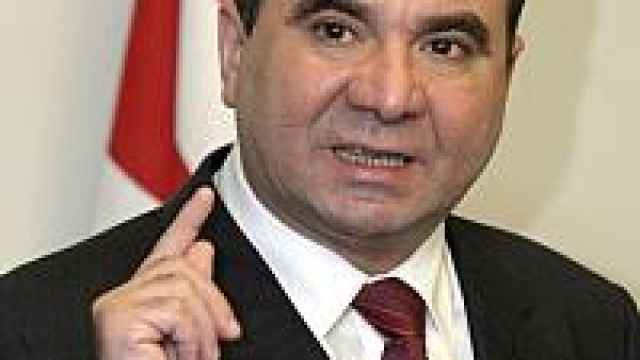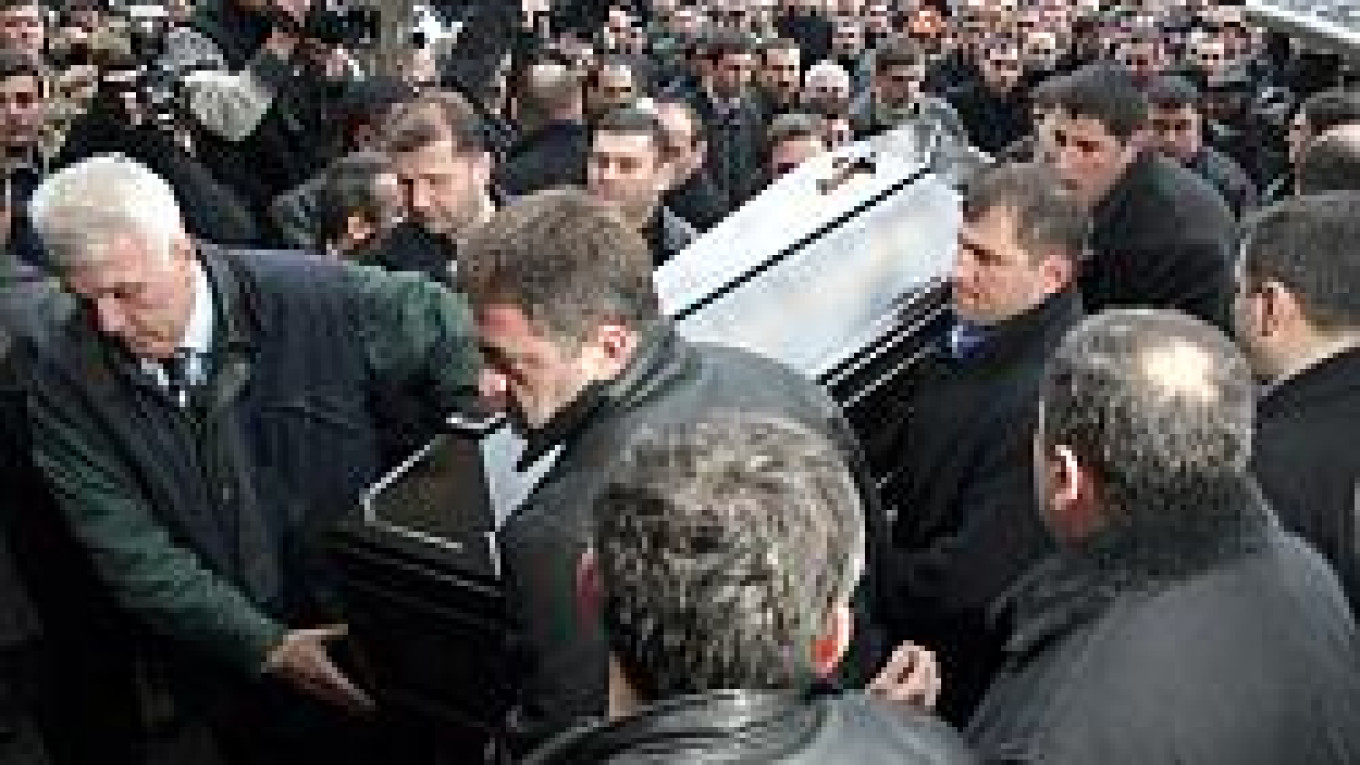Georgia's interior minister said there was no reason to suspect foul play, and a top forensic official found no sign of violence, saying preliminary examination showed both Zhvania and his host died from carbon monoxide poisoning.
Deputy Prosecutor Georgy Dzhanashia said the heater was installed "with serious technical violations" and noted that there was no ventilation in the apartment. However, Georgia has a history of political intrigue that sometimes turns violent.
An autopsy was under way, and prosecutors said an investigation had been opened. A Georgian lawmaker pointed the finger at "outside forces" in a reference to Russia, which has ties with Georgia's separatist regions of South Ossetia and Abkhazia -- prompting a terse response from Moscow.
The 41-year-old prime minister entered the Tbilisi apartment of his friend Zurab Usupov, deputy governor of the Kvemo-Kartli region, at about midnight Wednesday, Interior Minister Vano Merabishvili said. Security guards, who heard nothing from inside the apartment for several hours, broke through a window about 4 a.m., Merabishvili said.
A gas-fired heating stove was in the main room of the mezzanine-floor apartment. On a table set up in the room lay an open backgammon set, along with a loaf of bread and pieces of sausage. Zhvania was in a chair; Usupov's body was found in the kitchen. Central heating is scarce in Georgia, and many people rely on gas or wood stoves. Fatal malfunctions are often reported.
Lawmaker Alexander Shalamberidze said the death was suspicious, coming days after a car bombing that killed three policemen in Gori, the city nearest to South Ossetia. Zhvania had been trying to negotiate deals with the separatist regions.
"The explosion in Gori and Zhvania's death have dealt strong blows to our state. Now our neighbors are going to take advantage of that, they are saying we are almost savages living in the cold," Shalamberidze said.
Asked whom he meant, he replied, "Russia." "They are trying to prevent Georgia from getting stronger," he said. "The entire Russian diplomatic activity regarding our country confirms that."
Foreign Minister Sergei Lavrov, asked about the accusation, said: "The statements of those who rush to make judgments ... will remain on their consciences."
Hundreds of Georgians, many in tears, gathered outside the home of Zhvania's mother in central Tbilisi, where a brown wooden coffin with his body was delivered. A funeral was tentatively planned for Sunday.
At Tbilisi's St. Trinity Cathedral, Saakashvili and several top ministers lit candles in Zhvania's memory.
A visibly shaken Saakashvili said he had assumed control of the executive branch and urged Georgians to be calm.
 Shakh Aivazov / AP Zhvania in his office in Tbilisi on Aug. 5 | |
Named prime minister after Saakashvili was elected president in January 2004, Zhvania was considered a moderate influence in the government, and he was one of the key figures trying to negotiate a settlement with Abkhazia, as well as South Ossetia. On Wednesday, Zhvania had cautioned against blaming South Ossetians for the car bombing.
Zhvania's government also was working to overcome Georgia's endemic corruption, which had enriched some Shevardnadze-era officials while the country's economy deteriorated.
At an emergency Cabinet meeting earlier, Saakashvili said Georgia had lost "a great patriot."
President Vladimir Putin sent a telegram of condolence to Saakashvili.
A minister in South Ossetia's separatist government, Boris Chochiyev, expressed shock. Zhvania was "among the Georgian politicians who favored a peaceful settlement of the conflict. I can say that he represented the party of peace," Chochiyev said.
A Message from The Moscow Times:
Dear readers,
We are facing unprecedented challenges. Russia's Prosecutor General's Office has designated The Moscow Times as an "undesirable" organization, criminalizing our work and putting our staff at risk of prosecution. This follows our earlier unjust labeling as a "foreign agent."
These actions are direct attempts to silence independent journalism in Russia. The authorities claim our work "discredits the decisions of the Russian leadership." We see things differently: we strive to provide accurate, unbiased reporting on Russia.
We, the journalists of The Moscow Times, refuse to be silenced. But to continue our work, we need your help.
Your support, no matter how small, makes a world of difference. If you can, please support us monthly starting from just $2. It's quick to set up, and every contribution makes a significant impact.
By supporting The Moscow Times, you're defending open, independent journalism in the face of repression. Thank you for standing with us.
Remind me later.


